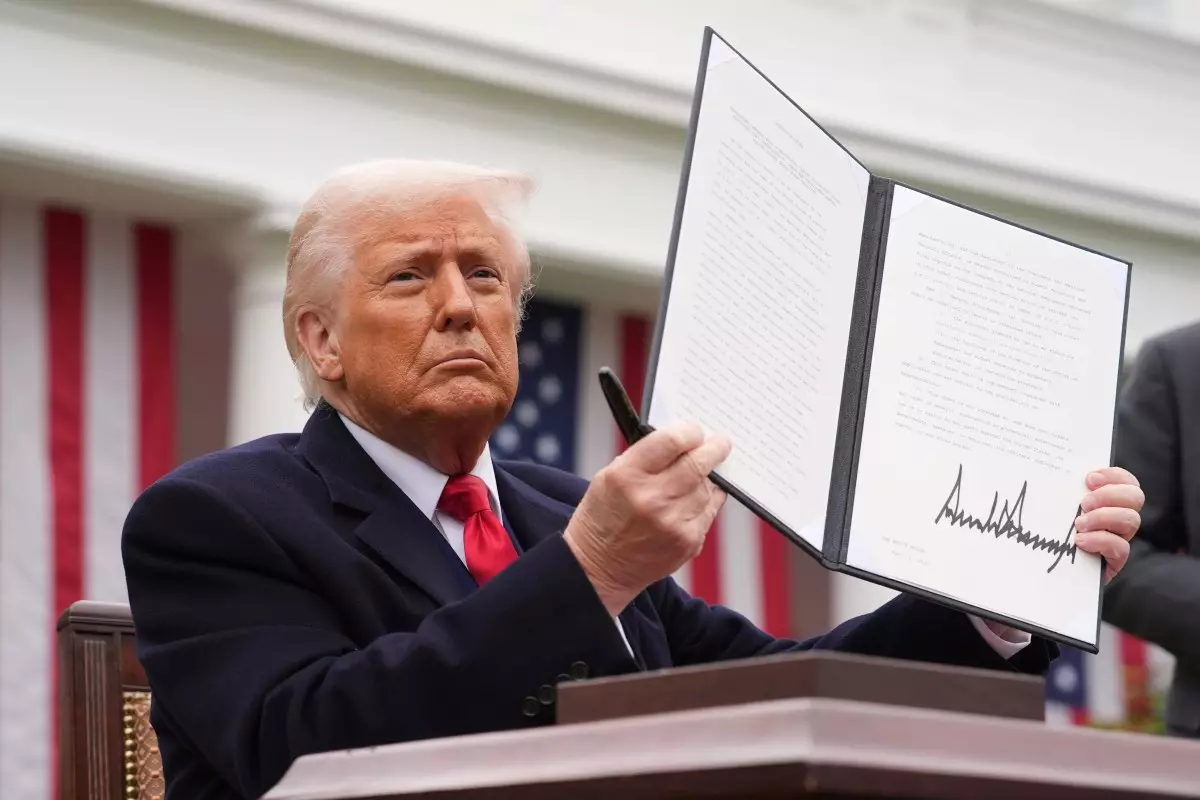The recent shifts in tariff policies by the Trump administration have garnered substantial attention and debate within the tech sector. While the president initially ramped up tariffs on Chinese goods, instating a baseline 10% with an alarming 125% surcharge, a sudden twist emerged. This unexpected pivot has led to the exclusion of several critical tech products from these disruptive tariffs, generating both relief and skepticism among stakeholders. For the technology industry, particularly those compelled to manufacture overseas, the stakes are exceptionally high.
The Delicate Balance of Manufacturing and Market Dynamics
Manufacturers have long faced the daunting challenge of navigating the complex landscape of international trade. Trump’s aggressive push for bringing manufacturing back to American soil was noble in intent but lofty in execution. Many experts argue that fantasies like an entirely American-made iPhone are fraught with logistical nightmares and economic realities that simply cannot be ignored. Nevertheless, the recent exemption list released by U.S. Customs and Border Protection, which prominently includes smartphones, laptops, and semiconductors, has created a temporary reprieve, sparking optimism among industry insiders.
Tech CEOs: Allies or Alibis?
Amid the shifting tariff landscapes, noteworthy figures in Silicon Valley such as Elon Musk have found themselves at the nexus of political maneuvering. This involvement highlights a strategic alliance, albeit one that raises eyebrows concerning the motivations behind such affiliations. While millions have been funneled into Trump’s inauguration by various tech CEOs, the tangible benefits seemed limited—until this latest announcement. Daniel Ives, a leading analyst at Wedbush Securities, heralded it as “a dream scenario for tech investors,” yet the reality of corporate lobbying in favor of political gestures remains contentious.
Consumer Implications: The Uncertain Future
At first glance, consumers can breathe a sigh of relief with the impending avoidance of inflated prices on popular devices like the iPhone. However, as the old adage goes, “tomorrow’s troubles may be lurking just around the corner.” The tech industry remains on edge with the looming threat of targeted tariffs and further regulatory scrutiny. Reports of an impending national security investigation into semiconductors by the Trump administration reflect a growing trend of intertwining trade policies with national interests—a strategy that could yield dire consequences for the industry at large.
What Lies Ahead?
While the current tariff reprieve might appear favorable in the short term, the tech industry is acutely aware that the landscape is far from stable. With ongoing debates around international trade and domestic manufacturing, the complexities of global supply chains continue to challenge even the most established companies. The question now is whether this moment of reprieve signals a genuine commitment to nurturing the American tech ecosystem or is simply a tactic in an ongoing chess game of economic diplomacy. As stakeholders scrutinize the administration’s next moves, the interplay of politics and business will undoubtedly shape the trajectory of the industry for years to come.

